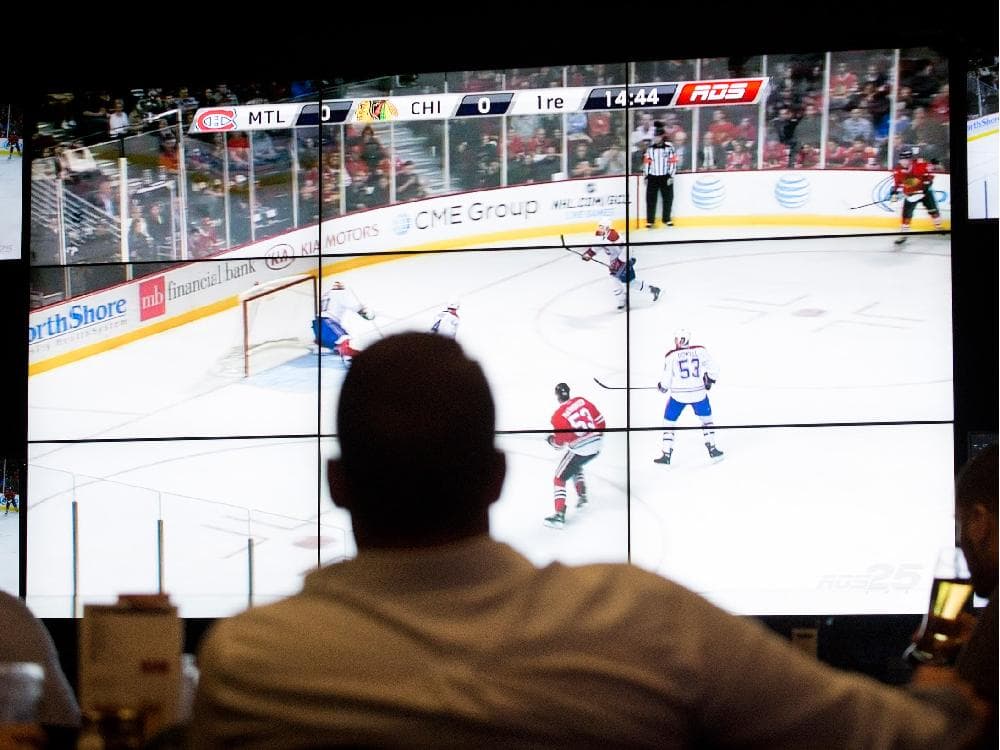Do you like to win arguments, but don’t trust any stats beyond goals and plus-minus? What if I told you that there’s a way that you can stay informed on every player, every goal, and every play in the National Hockey League so that you have the authority to back up your red hot takes?
Sportsnet 650 radio host and friend of the blog Andrew Walker shared this tip on how to stay up to date on the happenings all around the league, and it’s simpler than you think: he watches all the hockey.
I watched every hockey game every night. It’s what I do for a living
— Andrew Walker (@AndrewWalker650) December 3, 2017
Wow. If that seems like a lot of hockey, well that’s because it is. I’d almost be hesitant to believe it, but how else would he know a good period from a previously out-of-market team when he saw it? Perhaps he just meant once in a while, or he was – oh.
Yes every night it’s what I do
— Andrew Walker (@AndrewWalker650) December 3, 2017
I’m sure many of you are curious as to just how much hockey that is each day, so I took the liberty of crunching the numbers. It’s what I do after all. I ended up passing the final values off to my esteemed colleague Ryan Biech yesterday (which he tweeted here), but if you want to get into the nitty-gritty of it, here’s how it all breaks down.
Each hockey game, on an estimated average, ends about two hours and 40 minutes after its supposed start time. Now there’s intros and anthems, so we’ll cut about 10 minutes out right away. That leaves us with approximately 150 minutes of broadcast time.
Next, we’ll lop off 17 minutes for each intermission, and then six minutes of commercial breaks for each period (that’s three two-minute breaks). That brings us to a palatable 98 of broadcast time per game. Easy enough.
However, there are 1,302 regular season NHL games each year. That works out to about 127,596 minutes of broadcasts to watch through, or 2,126.6 hours. Of course, that seems like a lot now, but there is a whole six months to fit it in.
The NHL regular season is exactly 180 days long, per the CBA. That means that, on average, you’d have to spend 11 hours and 49 minutes per day watching hockey. Hell, even if you managed to perfectly skip every single break in play, and watched exactly 60 minutes of every game (and for some reason skipped overtimes), you’d still be watching hockey for seven hours and 14 minutes every single day. Even Christmas! If that’s not dedication, I don’t know what is. And we haven’t even considered pre-season or playoffs.
Maybe I shouldn’t heap too much praise on this accomplishment – it is his job after all. Still, you have to admire the perseverance to his craft. It’s no wonder that Walker’s eye test is so keenly developed. That’s undoubtedly why he can see the tremendous value in players like Brandon Sutter and Erik Gudbranson when the stats folk fail to pick it up.
It’s also impressive that he manages to fit this in despite being on the radio for three hours each weekday, plus prep time (I assume there’s prep time), not to mention that he also apparently watches a lot of NFL and other sports, which he probably talks about on air. And on top of everything, he still has time to come up with great opinions on things like corn.
I honestly don’t know how he does it. Myself, I barely have time to watch the Canucks and Comets and some other prospects, so I’m basically left watching goals and key moments (you know, highlights, like most people watch) of other NHL games. That’s why I’ve had to get comfortable with using a bevy of statistics to fill in the gaps. I just don’t have the ability to see every game, every season, and I certainly wouldn’t want to be claiming to do so if I wasn’t actually doing it. Then I’d look like a big fat liar.
Some of you might think that this post is bitingly sarcastic or even a veiled criticism, but I assure you that nothing could be further from the truth! I am a mature adult, and I have nothing but respect for people that treat others with respect, refrain from insulting their listeners, coworkers, or whoever doesn’t share their opinion, aren’t too quick to assume they understand the nuances and intricacies of a new market and culture, and who generally seem open to new ideas. As long as Andrew Walker ticks those very reasonable boxes, I can’t imagine why we’d have any sort of problem.


